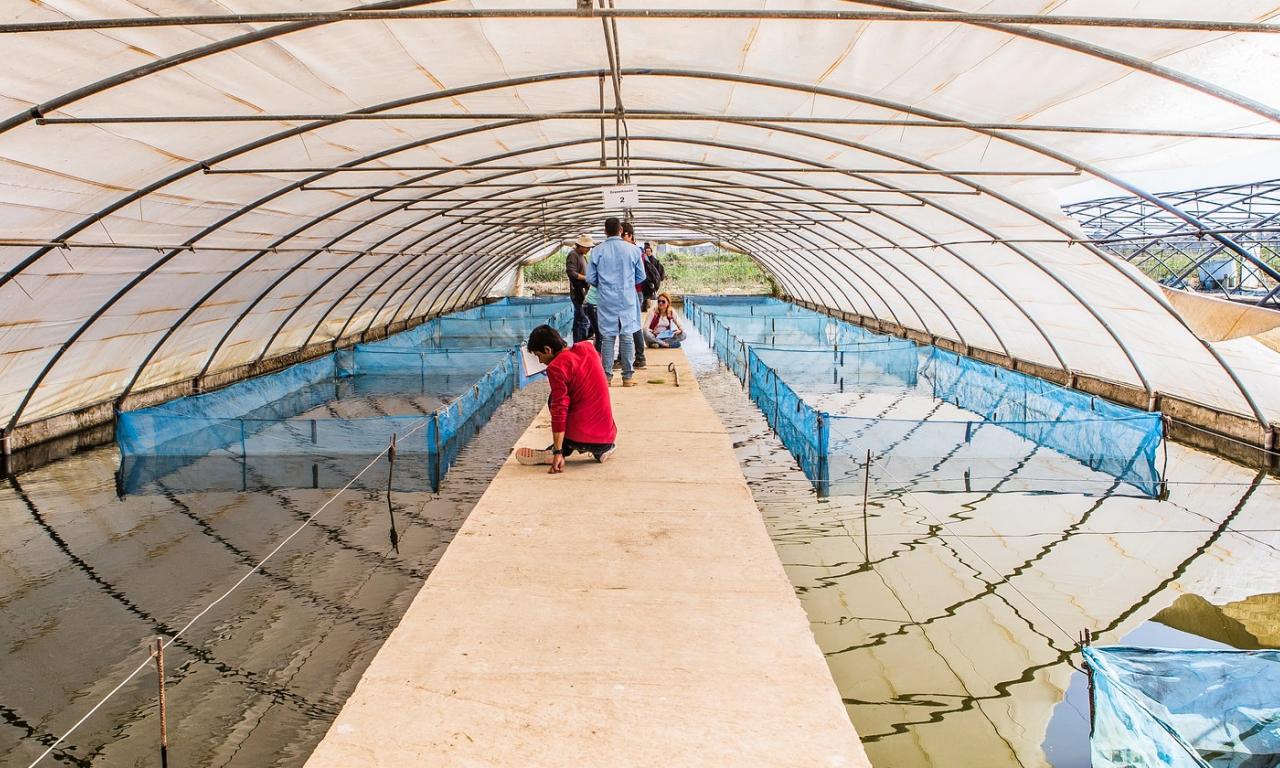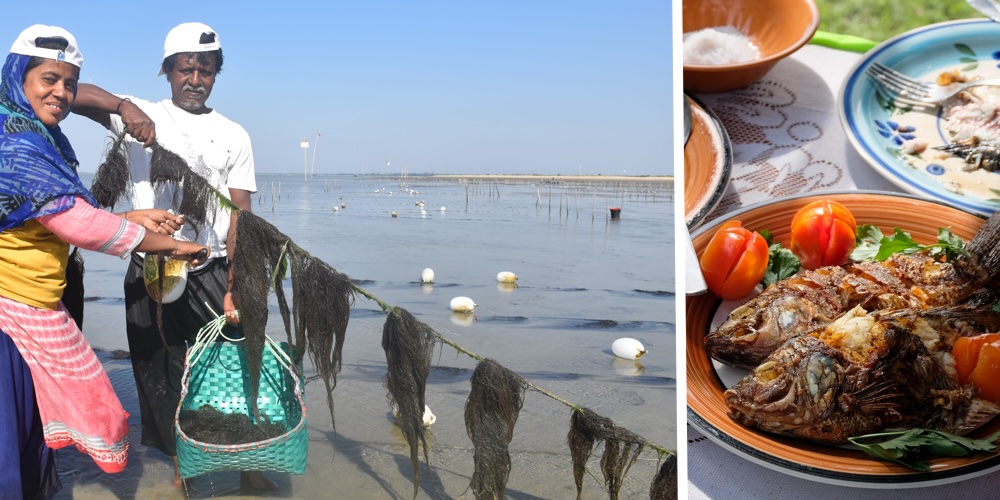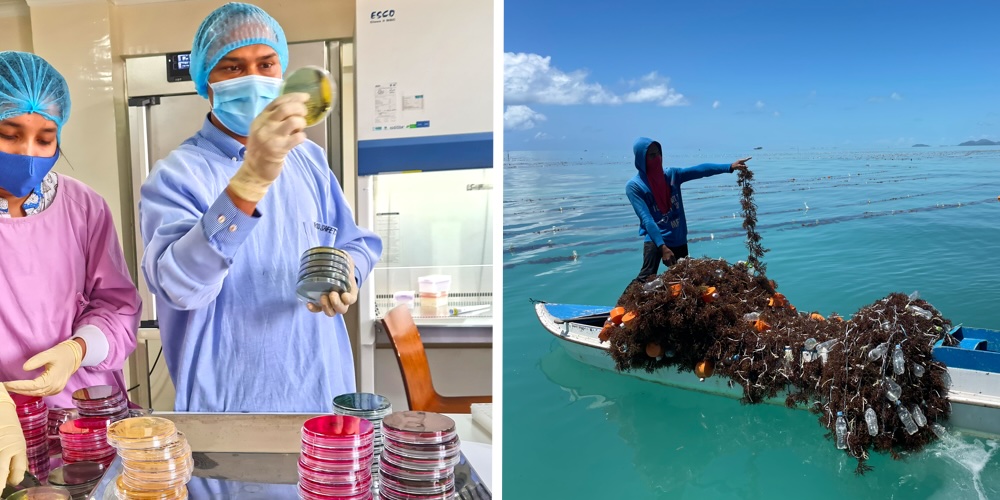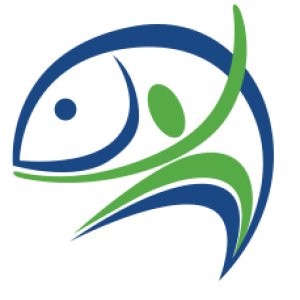
WorldFish scientists are working at the cutting edge of research into aquatic food science with several breakthrough innovations.
Seaweed: a Sustainable Superfood
Seaweed production has surged nearly 75 percent over the past decade. This growth raises the question: Can seaweed be the next major crop to help sustainably meet the nutritional needs of a growing population while combating climate change?
In 2023, a paper published by WorldFish scientists and Tufts University in Global Food Security investigated the farming and commercialization of seaweed in these regions. The study reviews seaweed's efficiency as a resource, its role in mitigating greenhouse gas emissions, and its nutrient-rich properties. It also highlights significant data gaps that need addressing to understand its impact on food insecurity and the carbon footprint of food systems.
In 2023, WorldFish initiated the AABS project. Under its work package on integrated multitrophic aquaculture, it is investigating innovative farming methods in saltwater environments, including seaweed cultivation. This work is designed to expand food production opportunities and enhance livelihoods in coastal regions.
Digitising Diagnostics for Better Fish Health
New technologies are making it easier and more cost-effective to sequence, diagnose and treat fish diseases. As such, WorldFish scientists are looking to leverage the potential for even earlier interventions to protect the health of farmed fish.
Scientists are currently working on new tools and large datasets to form the basis of a platform that can identify microbial markers or microbiomes that could signal a precursor to disease. This would be set alongside targets in aquatic animals and their production systems for improving aquaculture-related traits to minimize the risk of disease and strengthen productivity.
Creating a new web-based aquaculture pathogen identification tool needs ongoing investment in skilled data analysts and developers as well as IT infrastructure. The aim is to centrally connect systems in different countries to a cloud server to allow data scientists to perform bioinformatics analyses and report back to users in a timely manner.

Challenging Gender Norms to Improve Livelihoods
The gender-transformative approach is an emerging model for building the economic resilience of women within fisheries and aquaculture through greater gender inclusion.
WorldFish’s HER+ program studied how gender norms, such as the perception that it is inappropriate for women to go fishing, were holding back climate-resilient livelihoods in Tanzania. By limiting women to processing and marketing roles that relied on the safe storage of caught fish, their livelihoods were more exposed to climate hazards such as flooding.
WorldFish scientists are addressing this by working with both men and women to promote women’s engagement and roles within aquatic food systems, as well as empowering women with tools and training. This includes installing purpose-built fish drying racks to reduce women’s reliance on makeshift wooden racks that are more exposed to extreme weather. The initiative has also promoted greater engagement within aquatic food bodies and committees, such as beach management units.
Algorithms for Aquaculture
WorldFish scientists have developed a first-of-its-kind climate information system for fishers in Zambia.
It features an algorithm that uses air and water temperature to predict whether a pond is too warm or too cool for optimal fish breeding and growth. With this system, scientists have created a tool that helps guide fishers on early interventions to protect their stocks and reduce losses.
The algorithm is linked to a data hub that provides fishers with a decision tree based on forecasted pond temperature. It outlines the steps to take if the pond temperature is likely to fall below 12°C or above 41°C. By using deep learning and AI, the system can issue advisories 24 hours in advance, giving farmers a head-start in dealing with extreme temperatures. With ongoing improvements, WorldFish hopes to refine the system to offer advisories up to 7 days in advance.

Preserving Nutrition Value through Hot Smoking
Innovative food preservation methods are vital to enhancing food security, particularly in regions reliant on fisheries for economic stability and nutrition. A study published in 2023 explored the impacts of hot smoking on various fish species from Lake Nasser in Egypt. This research, spearheaded by WorldFish and the Egyptian National Institute of Oceanography and Fisheries, highlighted this method as a way to prolong shelf life and to enhance the nutritional profile of fish.
The study looked at six fish species to show that these species, when raw, contained a lot of moisture and significant levels of protein and lipids, which are essential for human health. The hot smoking process induced notable changes in these components, typically reducing moisture content while increasing protein and lipid concentrations. The result was a concentrated nutritional value per gram of smoked fish.
A remarkable aspect of this method was its effect on microbial load and safety markers. After hot smoking, the fish showed decreased microbial load and maintained quality within international safety standards, with no detection of harmful pathogens like E. coli and Salmonella. This not only ensures the safety of the smoked fish but also extends its marketability and reduces waste from spoilage.
The study’s findings highlight the potential for broader application of hot smoking techniques to safeguard nutritional intake in vulnerable regions and also to boost economic gains by lengthening the shelf life of fish products and their marketability.
Island Food Systems, a New Approach
Island Food Systems is a nascent field, pioneered by WorldFish, that responds to a largely neglected geography. This emerging research area harnesses historical insights and modern aquacultural practices to uniquely address the distinctive characteristics of food systems within small island states.
Aquatic foods are central to these food systems and crucial for the diet and economy of island communities. The WorldFish research program on island food systems develops and promotes this approach through briefings and “tok story” sessions—informal discussions that integrate local knowledge with scientific research. These methods have proven effective in blending cultural heritage with innovative practices to enhance food security and sustainability.
Initially targeted at the Pacific, the success of this approach has captured the attention of other parts of the world, including the Caribbean and the Indian Ocean region, highlighting its broad applicability and potential for global impact. This framework offers a promising model for addressing the unique challenges that island communities face worldwide.
